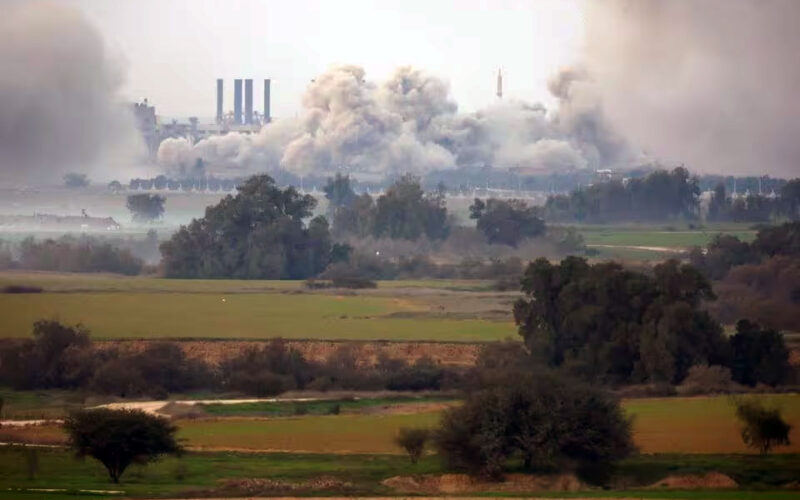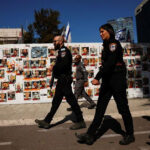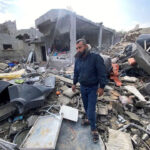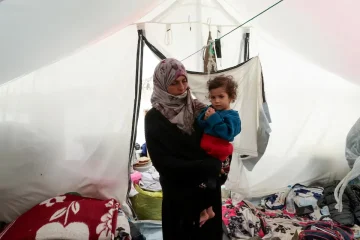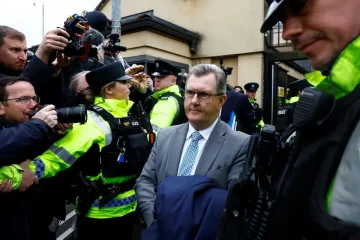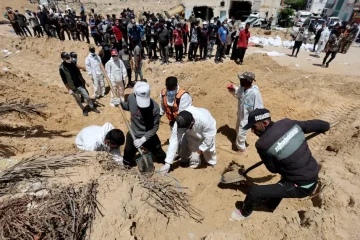ISRAELI jets intensified attacks on central Gaza, residents and medics said, as battles raged through the rubble of towns and refugee camps in a war that Israeli Prime Minister Benjamin Netanyahu said would take “many more months” to end.
Netanyahu’s comments signal no let-up in a campaign that has killed many thousands and levelled much of Gaza, while his vow to restore Israeli control over the enclave’s border with Egypt raises new questions over an eventual two-state solution.
Air strikes pounded al-Maghazi and al-Bureij in the centre of Gaza, killing 10 people in one house and driving more to flee to Rafah on the border with Egypt from front lines where Israeli tanks are battling Hamas fighters.
A Red Crescent video published on Sunday showed the chaotic aftermath of strikes in central Gaza, as rescuers worked in the dark to carry an injured child from smoking rubble.
As the year drew to a close, Palestinians in Gaza were praying for a ceasefire but had little optimism that 2024 would be better.
“Gaza has been destroyed and we have nowhere to live. But we just want to stop hearing the sounds of planes and drones, for children to stop being afraid, and for us and our loved ones, those who are left, to meet again,” said Suzan Khader in Rafah.
The stated goal of Israel’s military is to eliminate Hamas, the Palestinian militant group that launched a surprise cross-border assault on Israeli towns on Oct. 7, killing 1,200 people, mostly civilians, and grabbing 240 hostages.
Israel’s air and artillery bombardment has killed more than 21,800 people according to health authorities in Hamas-run Gaza, with many more feared dead in the rubble, and pushed nearly all of its 2.3 million people from their homes.
Palestinian health ministry casualty figures do not differentiate between fighters and civilians but the ministry has said 70% of Gaza’s dead were women and under-18s. Israel disputes Palestinian casualty figures and says it has killed 8,000 fighters.
The war and lack of supplies have left 40% of Gazans at risk of famine, the Gaza director of the U.N. agency for Palestinian refugees said on social media on Saturday.
Israel blockaded most food, fuel and medicine after the October 7 attack. It said on Sunday it was ready to let ships from some Western countries deliver aid directly to Gaza’s shores after security checks in Cyprus.
Gemma Connell, an official with the U.N. humanitarian agency OCHA who has been working in Gaza, said tens of thousands of people fleeing to Rafah had been through attacks and bombardment and had arrived often with no possessions or anywhere to sleep.
“I just am so fearful that the amount of deaths that we’ve been seeing is going to increase exponentially both because of this renewed offensive but also because of these conditions which are literally unbelievable,” she said.
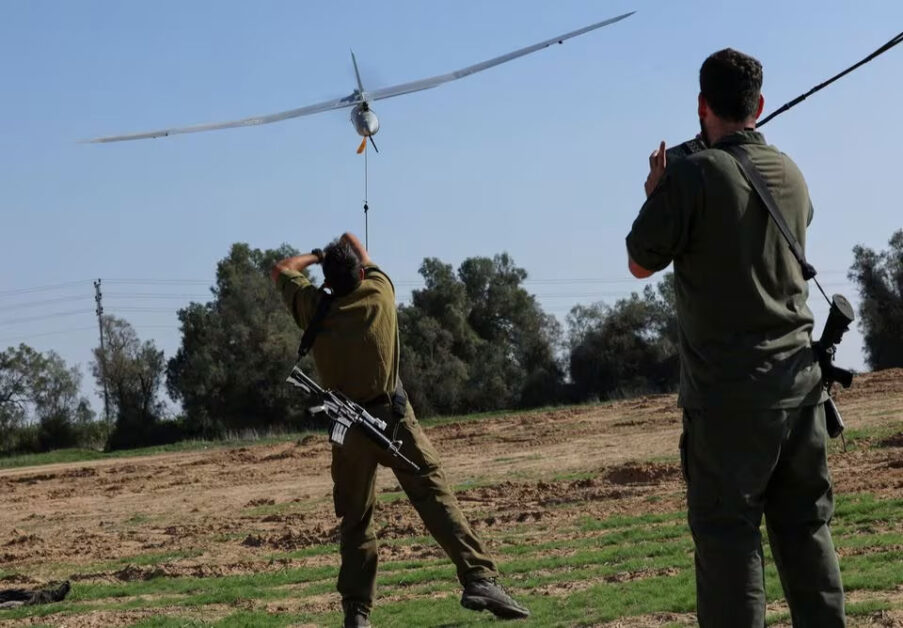
‘WHERE WILL PEOPLE GO?’
The United States, Israel’s main ally, has urged it to scale down the war and European states have signalled alarm at the extent of Palestinian civilian suffering.
However, Netanyahu’s comments on Saturday, when he said he would not resign despite opinion polls showing his government is broadly unpopular and defended his security record despite the Oct. 7 attack, indicate there will be no easing any time soon.
He said “The war is at its height” and Israel would have to retake control of Gaza’s border with Egypt – an area now crammed with civilians who have fled the carnage across the rest of the enclave, leading aid agencies to set up “tent cities” for displaced families sleeping rough on the streets.
Retaking the border could also constitute a de facto reversal of Israel’s 2005 withdrawal from Gaza, raising new questions over the future of the enclave and prospects for a Palestinian state.
In his last comments as Israeli Foreign Minister before switching to the energy portfolio on Sunday, Eli Cohen said the border was the likely source of weaponry Hamas had obtained over recent years.
Senior Palestinian Authority official Hussein al-Sheikh in the Israeli-occupied West Bank said via social media that Israel taking over the border was evidence of a decision “to completely return the occupation”.
Egypt’s Foreign Ministry did not immediately comment on Israeli plans to retake the border area or on whether Hamas weapons had entered Gaza from Egypt.
“We moved here from Khan Younis on the basis that Rafah was a safe place. There is no space in Rafah as it is overcrowded with displaced,” said Umm Mohammed, 45, a displaced Palestinian woman sheltering by the border.
“If they control the border, where will people go?” she asked, saying this would be “a disaster”.
MAERSK CARGO SHIP COMES UNDER ATTACK
The war risks morphing into a wider regional conflict involving Hamas ally Iran and groups Tehran supports across the Middle East.
Israel and Lebanon’s Iran-backed Hezbollah have exchanged regular cross-border fire, with the Israeli military saying it struck targets in Lebanon on Sunday. Israel has hit Iran-linked targets in Syria. And Iran-backed groups have attacked U.S. targets in Iraq.
Yemen’s Iran-aligned Houthi group, which has been attacking shipping in the Red Sea for weeks in what it calls a response to Israel’s war in Gaza, attacked a Maersk cargo ship on Saturday and Sunday, the U.S. military said.
U.S. naval helicopters sank three of the four small boats the Houthis had used in Sunday’s attack and drove the fourth back to shore, the military said.
Israel says 174 of its military personnel have been killed in the Gaza fighting but that its operations are making progress, including destroying some Hamas tunnels under the enclave.
Hamas and Islamic Jihad – both sworn to Israel’s destruction – have said they continue to target Israeli forces operating in the enclave.

